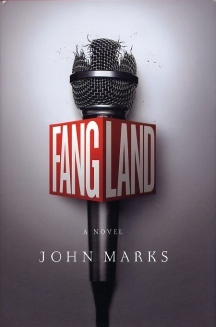 | |
| Author | John Marks |
|---|---|
| Language | English |
| Genre | Thriller Horror Suspense |
| Publisher | Penguin Press / Penguin Putnam |
Publication date | January 15, 2007 |
| Publication place | United States |
| Media type | Print (hardback) |
| Pages | 388 pp |
| ISBN | 978-1-59420-117-2 |
| OCLC | 70630646 |
| 813/.54 22 | |
| LC Class | PS3563.A66655 F36 2007 |
Fangland is a 2007 novel written by John Marks, a former producer for 60 Minutes . It is a reimagined version of Dracula by Bram Stoker, set in a post-9/11 New York. Like Dracula, Fangland is written in parts as an epistolary novel through e-mails, diary entries and letters. It received a World Fantasy Award nomination. [1]